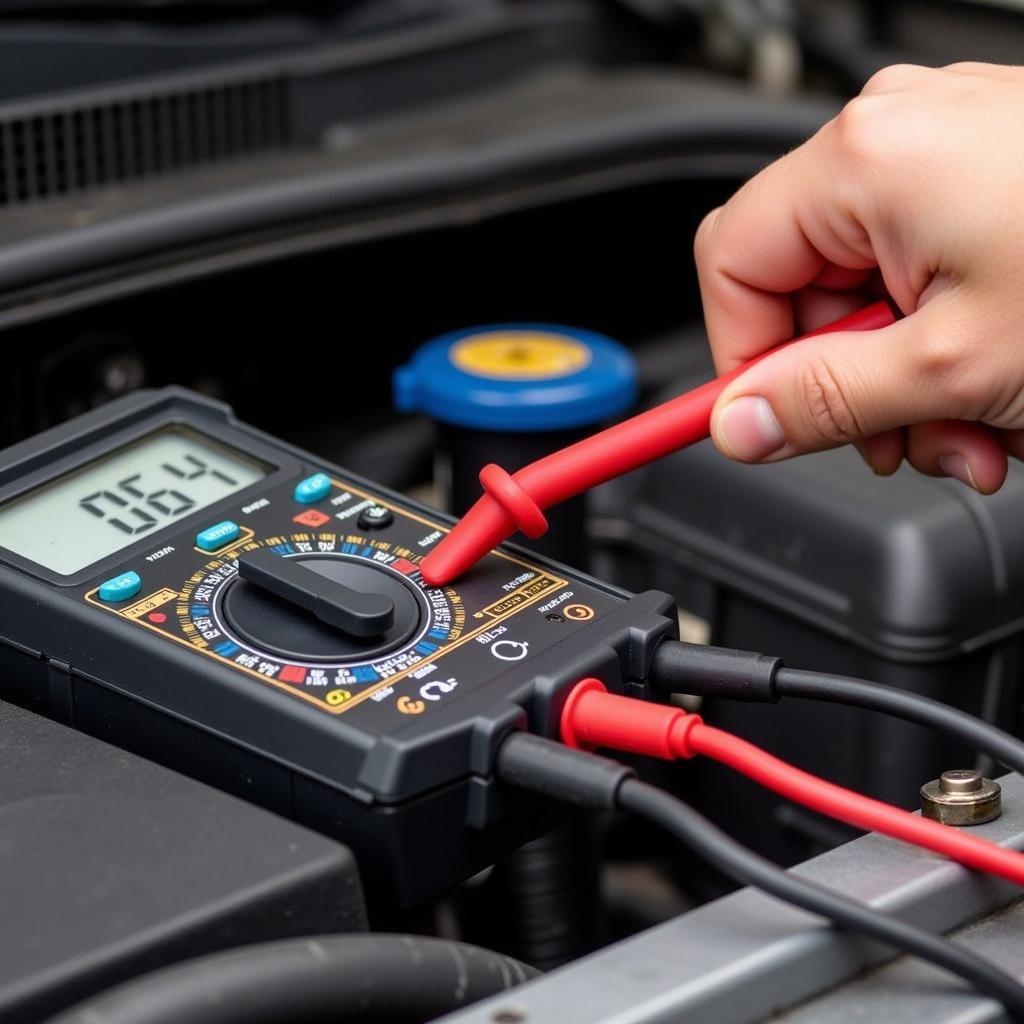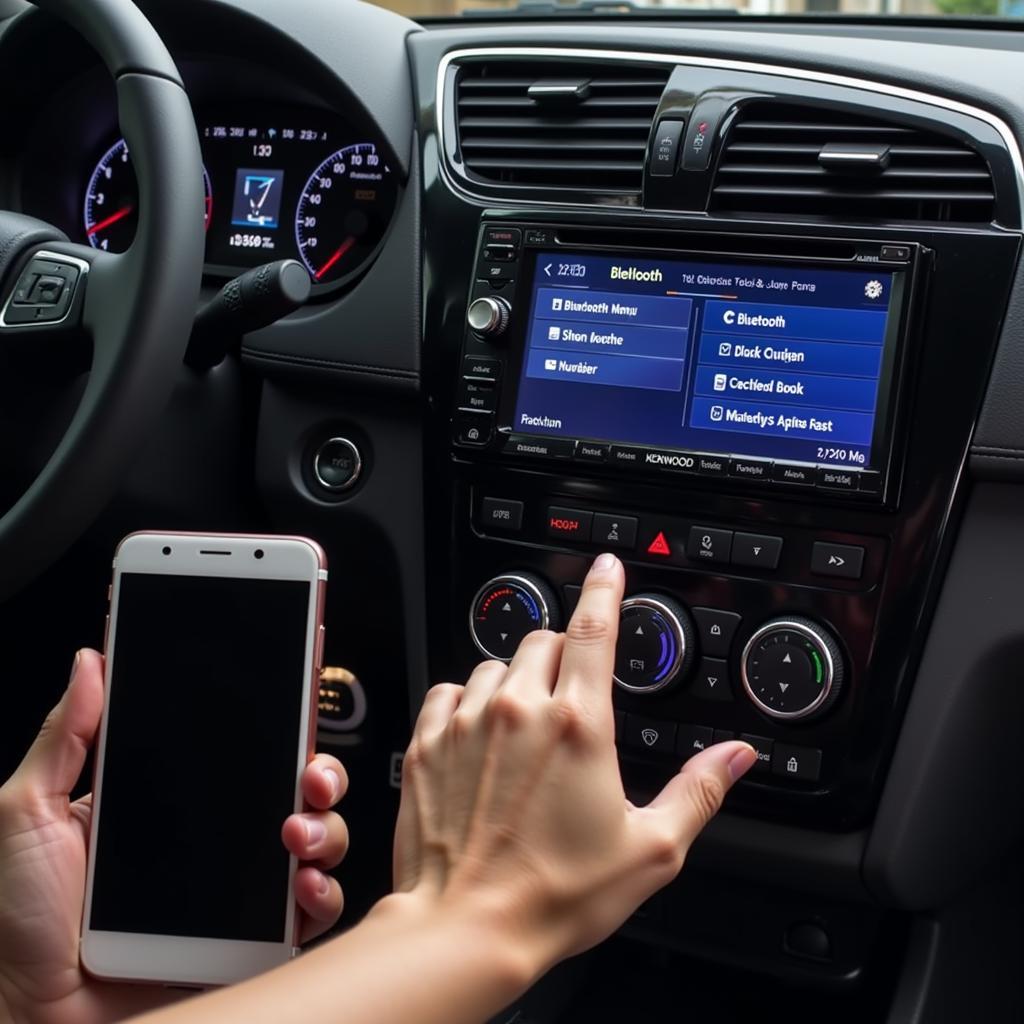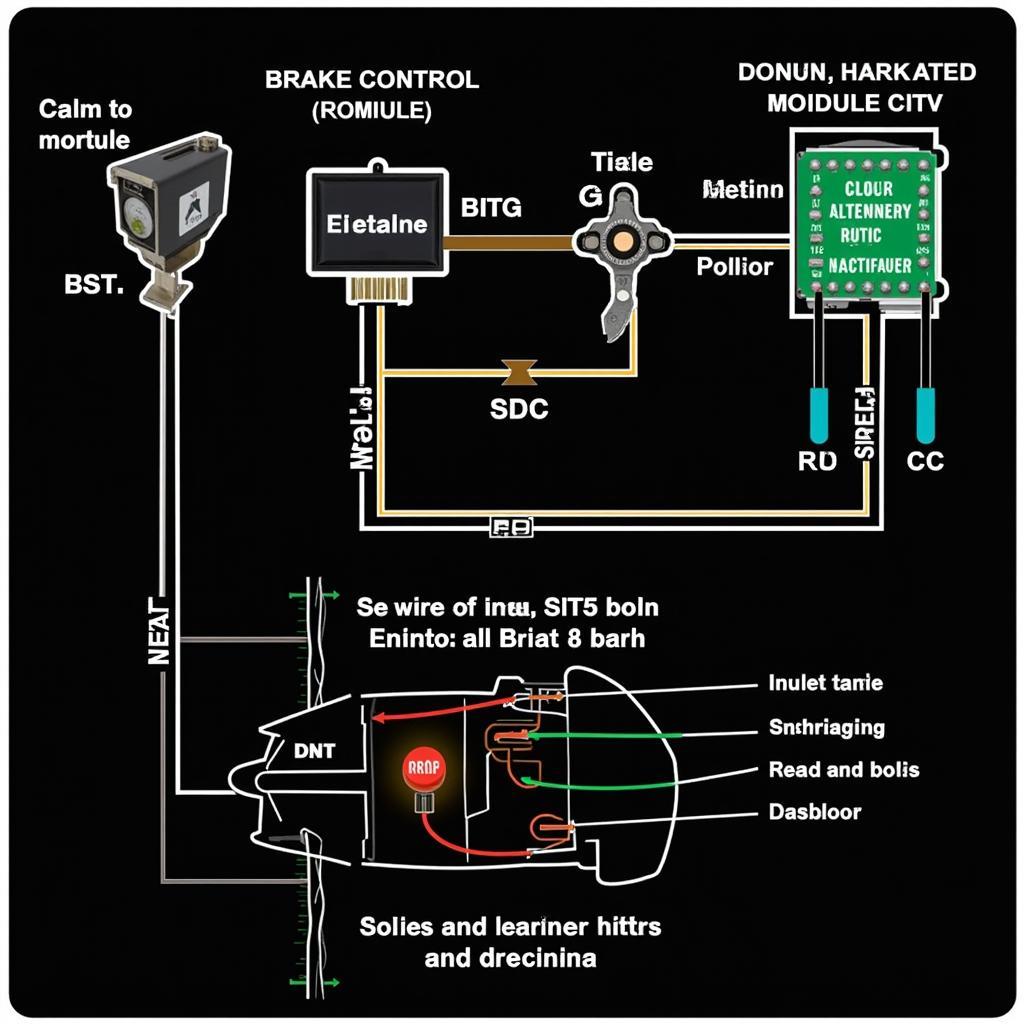If the battery in your car keeps dying, you’re not alone. This frustrating issue can stem from a variety of causes, from a simple parasitic drain to a more complex alternator problem. This guide will explore the most common reasons why your car battery keeps dying and provide you with practical solutions to get you back on the road.
Why Does My Car Battery Keep Dying?
Several factors can contribute to a continually dying car battery. Understanding these factors is crucial to accurately diagnosing the problem and implementing the right solution. Some of the most common culprits include:
- Parasitic Drain: Even when your car is off, certain electrical components continue to draw power, albeit a small amount. A faulty component or a wiring issue can cause an excessive drain, leading to a dead battery.
- Failing Alternator: The alternator is responsible for recharging the battery while the engine is running. If the alternator is malfunctioning, it won’t properly charge the battery, resulting in a gradual discharge and eventual death.
- Old or Damaged Battery: Over time, car batteries degrade and lose their ability to hold a charge. Physical damage, such as cracks or leaks, can also shorten a battery’s lifespan.
- Extreme Temperatures: Both extreme heat and extreme cold can negatively impact a car battery’s performance and lifespan.
- Driving Habits: Short trips, frequent starts and stops, and leaving accessories on can strain the battery and lead to premature failure.
- Corroded Battery Terminals: Corrosion on the battery terminals can disrupt the flow of electricity, hindering the charging process and causing starting problems.
 Checking Car Battery Voltage with Multimeter
Checking Car Battery Voltage with Multimeter
Troubleshooting a Dying Car Battery: A Step-by-Step Guide
Here’s a practical guide to help you troubleshoot your car battery issues:
- Check the Battery Terminals: Inspect the battery terminals for corrosion. If present, clean them with a wire brush and a mixture of baking soda and water.
- Test the Battery Voltage: Use a multimeter to check the battery voltage. A fully charged battery should read around 12.6 volts. If the reading is significantly lower, the battery may need to be replaced.
- Test the Alternator: With the engine running, the voltage should be around 14 volts. A lower reading indicates a potential alternator problem.
- Check for Parasitic Drain: With the car off and all accessories turned off, use a multimeter to measure the current draw. A small draw is normal, but a significant draw suggests a parasitic drain.
How to Prevent Your Car Battery from Dying
- Regular Maintenance: Have your battery tested regularly, especially during extreme weather conditions.
- Clean Battery Terminals: Keep the battery terminals clean and free of corrosion.
- Limit Short Trips: If possible, combine short trips to allow the alternator to fully recharge the battery.
- Turn Off Accessories: Before turning off your car, ensure all accessories, such as lights, radio, and air conditioning, are turned off.
Expert Insights
“Many drivers underestimate the importance of regular battery maintenance,” says John Smith, a certified automotive technician with over 20 years of experience. “A simple battery test can prevent unexpected breakdowns and costly repairs down the road.” He also adds that “Ignoring a brake warning light vw can sometimes be linked to electrical problems and can eventually drain your battery.” Another insightful tip from John is, “Understanding how your dodge challenger brake warning lights function can help you prevent future electrical issues that may contribute to a dying battery.”
Conclusion
A dying car battery can be a nuisance, but by understanding the potential causes and following the troubleshooting steps outlined in this guide, you can quickly identify and address the problem. Remember, regular maintenance and proactive care can significantly extend your battery’s lifespan and keep you on the road. If the battery in your car keeps dying, don’t hesitate to seek professional help. A qualified technician can accurately diagnose the issue and recommend the appropriate course of action. If you’re experiencing issues with your Dodge Challenger, checking the dodge challenger brake warning light is a good starting point.
FAQ
- How long does a car battery typically last? Most car batteries last between 3 and 5 years.
- Can I jump-start my car if the battery is dead? Yes, you can jump-start your car using jumper cables and another vehicle with a working battery. However, it’s important to follow the correct procedure to avoid damage. You might also find information on how to fix 73 challenger brake warning light switch useful.
- What are the signs of a failing alternator? Dim headlights, flickering interior lights, and strange noises coming from the engine compartment can be signs of a failing alternator. Are you experiencing issues with your AdBlue system? Check out this article: Why is my AdBlue light still on after filling it up?.
- How much does a new car battery cost? The cost of a new car battery varies depending on the type and brand, but typically ranges from $50 to $200. Sometimes, seemingly unrelated issues like dodge challenger brake warning lights can indicate an electrical problem that might drain your battery.
- Can I replace my car battery myself? Yes, you can replace your car battery yourself with the right tools and a little mechanical know-how.
- How can I prevent my car battery from dying in cold weather? Parking your car in a garage or using a battery warmer can help prevent your battery from dying in cold weather.
- What should I do if my car battery keeps dying after being replaced? If your new battery keeps dying, there may be an underlying electrical issue, such as a parasitic drain or a faulty alternator. It’s important to have the vehicle inspected by a qualified technician. brake warning light vw can sometimes be related to underlying electrical problems affecting the battery.


